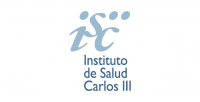Deep brain stimulation in treatment-resistant schizophrenia. A combined open/double-blind crossover trial examining nucleus accumbens and ventral tegmental targets.
Deep brain stimulation (DBS) in which high frequency electrical pulses are delivered to specific brain areas through implanted electrodes, has an established place in the treatment of certain neurological disorders. It has also demonstrated encouraging results in patients suffering with refractory forms of obsessive-compulsive disorder and major depression. Its use in patients with treatment-resistant schizophrenia is also under active consideration, but so far trials are few. The only completed formal clinical trial to date (N=7), carried out partly by members of the current research group, found preliminary evidence of effectiveness in 3 treatment resistant schizophrenic patients given DBS to the nucleus accumbens, a dopamine-rich site of the brain.
The present study aims to further examine the efficacy and safety of DBS in the nucleus accumbens (N=4 patients) and to explore its potential effectiveness in a new site, the ventral tegmental area (N=4), the brain area that gives rise to dopamine projections to the nucleus accumbens and other brain regions implicated in schizophrenia. The trial will follow the design of our earlier trial: after a 6 month (or longer if necessary) open treatment phase, patients who meet predetermined criteria for improvement will undergo a 12-week crossover phase where the stimulation will be switched off for half the time under double-blind conditions. Extended posttrial follow-up (12+ months) will also be undertaken to monitor for long term adverse psychiatric effects.
166.980,00€
Instituto de Salud Carlos III y cofinanciado por la Unión Europea.
 |  |  |